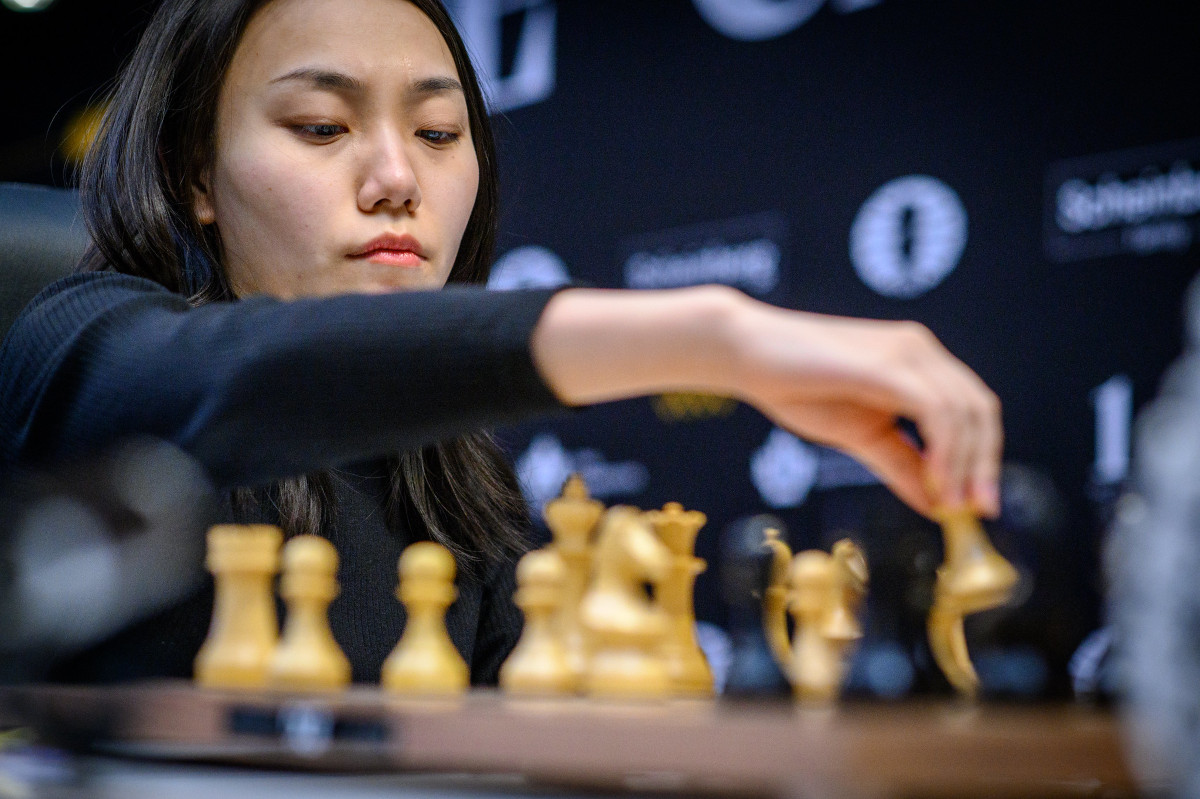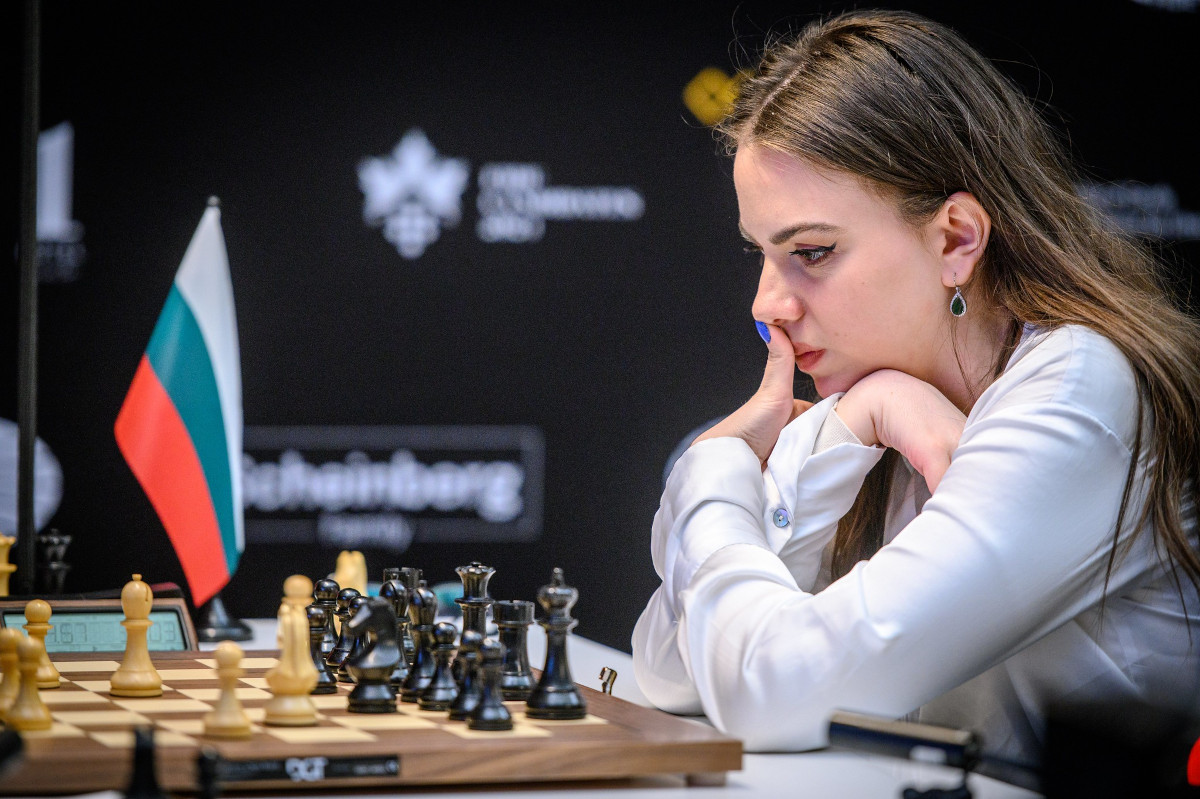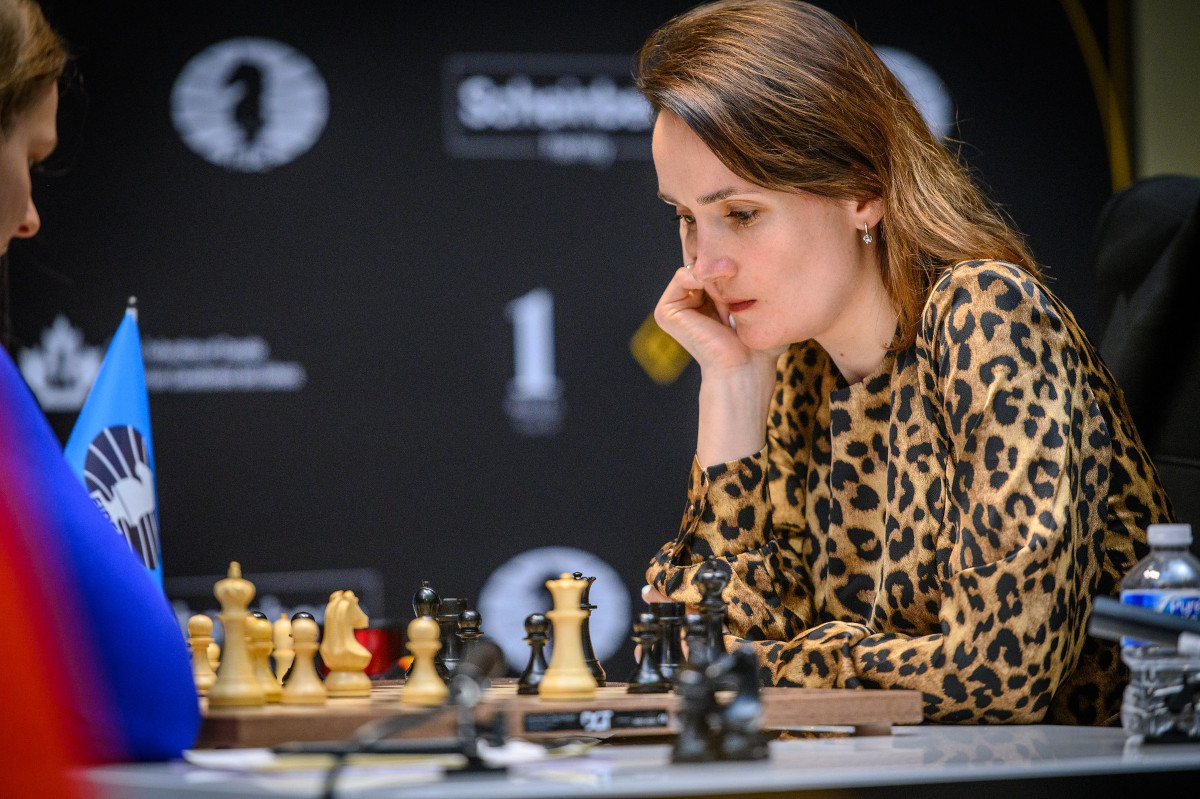.jpeg)

.jpeg)
ChessBase 17 - Mega package - Edition 2024
It is the program of choice for anyone who loves the game and wants to know more about it. Start your personal success story with ChessBase and enjoy the game even more.
Vaishali R qualified to the Women’s Candidates by winning the Women’s Grand Swiss in November 2023. Soon after, the humble 22-year-old made headlines, as she and her brother Praggnanandhaa had just become the first-ever brother-sister grandmaster duo — Vaishali surpassed the required 2500 rating mark at the El Llobregat Open in Barcelona.
Understanding Material Imbalances
This DVD focuses on several types of material imbalances, such as Rook vs 2 Pieces, Queen vs 2 Rooks, and Queen vs Pieces.
The strong year the siblings had in 2023 also granted both of them spots at the Candidates. Now in Toronto, Vaishali and Pragg have started with the exact same three results in the first rounds of their respective events: a draw, a loss and a win. After the family had a tough day in the second round (with painful losses against Gukesh D and Tan Zhongyi), both Vaishali and Pragg bounced back with remarkable wins on Saturday.
Vaishali got the better of Nurgyul Salimova in a confrontation between the two youngest and the two lowest-rated participants in the event. Like her brother, Vaishali got an advantage on the clock, as she soon proved to be well-prepared in the position arising from a Petroff Defence that appeared on the board. Salimova faltered decisively on move 16, and Vaishali showcased her tactical ability to get a 33-move win.
Round 3 also saw sole leader Tan Zhongyi signing her first draw of the tournament, as she and Humpy Koneru signed the peace treaty after reaching a completely equal rook endgame.
The remaining two games also finished drawn, but not without excitement:
Saturday’s results left Tan atop the standings with 2½ points to her name. Goryachkina stands in sole second place a half point back.

Lei Tingjie played the Evans Gambit against Aleksandra Goryachkina, one of the favourites to take the title! | Photo: FIDE / Michal Walusza
Out of a Petroff Defence, Vaishali employed a rather strange move order by playing 10.Bd4, a manoeuvre that had Salimova thinking for 25 minutes before replying by 10...Bd7. The Bulgarian IM did not falter decisively in the early stages of the game, but Vaishali surely had the psychological upper hand thanks to her clever opening play.
Moreover, the Indian’s 14.Nxf7 — which was not the only playable move in the position — further improved her standing in the game.
Engines evaluate the position as balanced here, but it is always easier to play with the initiative, especially in high-pressure events.
After 14...Kxf7 15.Bc4 Kf8 16.Qd3, Salimova erred by playing the hasty 16...Bg5+
16...Bf6 was the correct way to defend the kingside. After the text, White’s best continuation is 17.hxg5 Qxg5+ 18.Kb1, keeping the advantage with the strong pair of bishops facing a rather vulnerable king.
Vaishali went for 17.Kb1 instead, giving Salimova a second chance to play 17...Bf6.
However, the game’s continuation with 17...Ne5 18.Bxe5 Bf6 (it is too late now) 19.Bxd6+ gave White a winning advantage.
By capturing on d6, White further opens up the position around the black king, and there is no good way for Black to prevent her rival from regaining the piece (with interest) shortly after.
Once the dust had settled, Vaishali found herself four pawns up in an endgame with rooks and bishops of opposite colours.
Master Class Vol.16 - Judit Polgar
In this video course, experts (Pelletier, Marin, Müller and Reeh) examine the games of Judit Polgar. Let them show you which openings Polgar chose to play, where her strength in middlegames were, or how she outplayed her opponents in the endgame.
Salimova continued playing until move 33, when she admitted defeat in what was her first loss of the tournament. The lowest-rated player in the field had safely held draws against Muzychuk and Lei in the first two rounds.

Nurgyul Salimova | Photo: FIDE / Michal Walusza
The Leningrad Dutch Defence - A repertoire against 1.d4, 1.c4 and 1.Nf3
The Leningrad Dutch Defence is a dynamic and aggressive opening choice for Black, perfect for players who want to add some adventure and spice to their repertoire.
Muzychuk ½ - ½ Lagno
After showing good preparation out of a Ruy Lopez, these two experienced GMs simplified into a major-piece endgame with five pawns per side.
Lagno, playing black, suddenly faltered with 31...Qb5, to which Muzychuk replied with the correct idea — i.e. 32.Qf5+ Kh8 33.Qc8+ Kh7 34.Rd1 e4 35.Rd8 (doubling on the eighth rank) Rxa5 36.Rh8+ Kg6
White has two alternatives here: 37.Qg4+ and 37.Qe8+. With the clock ticking down dangerously, Muzychuk repeated the position twice by giving checks from g4 and d7, but once the time control had passed (and she received 30 extra minutes), the Ukrainian still failed to notice that 41.Qe8+ was winning for White — she played 41.Rg8 and a draw was soon agreed.
After 41.Qe8+, both 41...Kg5 or 41...Kf5 are losing for Black, e.g.:
Magical Chess Endgames Vol. 1 & 2 + The magic of chess tactics
In over 4 hours in front of the camera, Karsten Müller presents to you sensations from the world of endgames - partly reaching far beyond standard techniques and rules of thumb - and rounds off with some cases of with own examples.
In both cases, Black can only escape checkmate by making huge material concessions. A big miss by Muzychuk, who had been defeated by Goryachkina in round 2.

Kateryna Lagno | Photo: FIDE / Michal Walusza
Master advanced Tactics and Calculations like a super Grandmaster
The Indian chess grandmaster Vidit Gujrathi with an ELO of over 2700 (June 2023) is one of the best 20 players in the world. For the first time, the sympathetic top player presents himself in a video course. Let a world-class player show you tactical moti
Watch tons of high-quality content on ChessBase India’s YouTube channel!